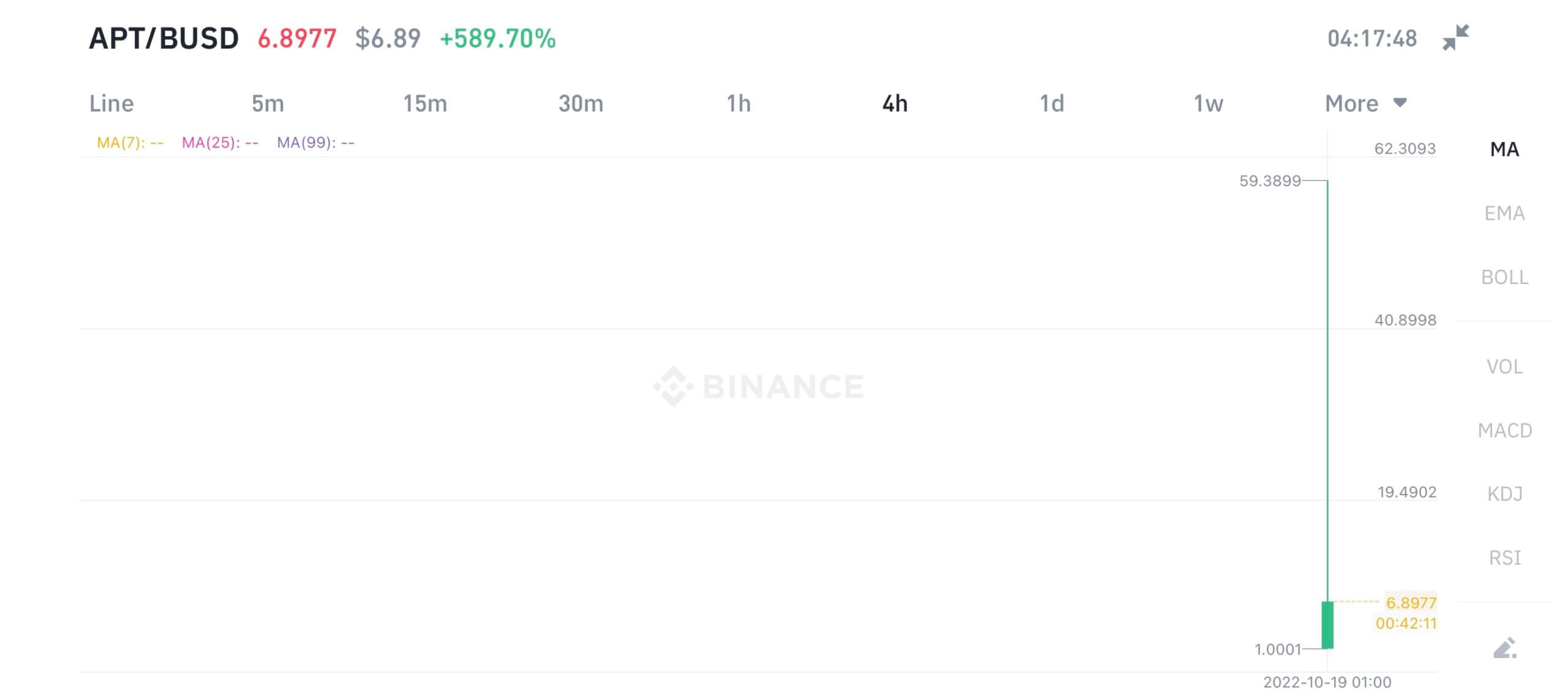No products in the cart.
- Latest
- Trending
ADVERTISEMENT

Layer-1 blockchain network Aptos has crashed about 45% to $8.15 on its first day of trading, according to CoinGecko. data.
On Binance, APT briefly surged to $59.39 before dipping below $10. Crypto exchanges have accounted for over 50% of the token’s trading volume in the last 24 hours.
The Aptos Foundation has announced that it will airdrop around 20 million APT tokens to early network participants after receiving backlash from the community regarding its tokennomics.
1/ Aptos Foundation provided APT tokens to early network participants. If you are eligible for a claim, you will receive an email from [emailprotected] in the next few hours.
Aptos (@AptosFoundation) October 18, 2022
On the other hand, well-known Chinese cryptocurrency reporter Colin Wu reported that the foundation lacked a strict anti-Sybil attack protocol and some users were able to obtain large numbers of airdrop tokens. Wu added that someone sold his 189,567 APT tokens directly on Binance, lowering the price from his $15 to his $13.

Further Kure Blockchain report After launching tokens when the APT contract was shut down, FTX ran into issues that prevented many users from closing their positions. FTX says it is working to fix the issue.
The Aptos blockchain received a lot of criticism on October 17th for failing to deliver on its scalability promises and lacking information on tokennomics.
However, its developers have come out to dispel those rumors while the network is performing as expected. release A condensed version of that tokenomics.
Developer Paul Fidika, who claims to have been involved in staking Aptos, revealed that he stopped working on Aptos due to its dangerous tokenomics, adding that the foundation hand-picked all validators on the network.
I’ve been working on staking Aptos and trying to avoid Aptos FUD, but I knew posts like this were coming. This is why we stopped building on Aptos https://t.co/i1FohoVGqn
Paul Fidika | OpenRails.dev (@PaulFidika) October 18, 2022
He said:
All 101 validators were hand-picked by Aptos Labs/Foundation. To be included in the validator set, they had to sign an arbitration agreement in the Cayman Islands.
He also pointed out other issues that hinder work on the network, such as using proof-of-stake mechanisms for “economy, not security.” Among other issues, the use of the HotStuff algorithm and the removal of the shared staking feature can lead to “a few slow validators can quickly degrade network performance (degrade).”
Become a member of CryptoSlate Edge to access our exclusive Discord community, more exclusive content and analytics.
On-chain analysis
price snapshot
more context
Register now for $19 per month Explore all benefits

Copyright © Pbird Media | Copyright © All rights reserved 2024

Copyright © Pbird Media | Copyright © All rights reserved 2024











